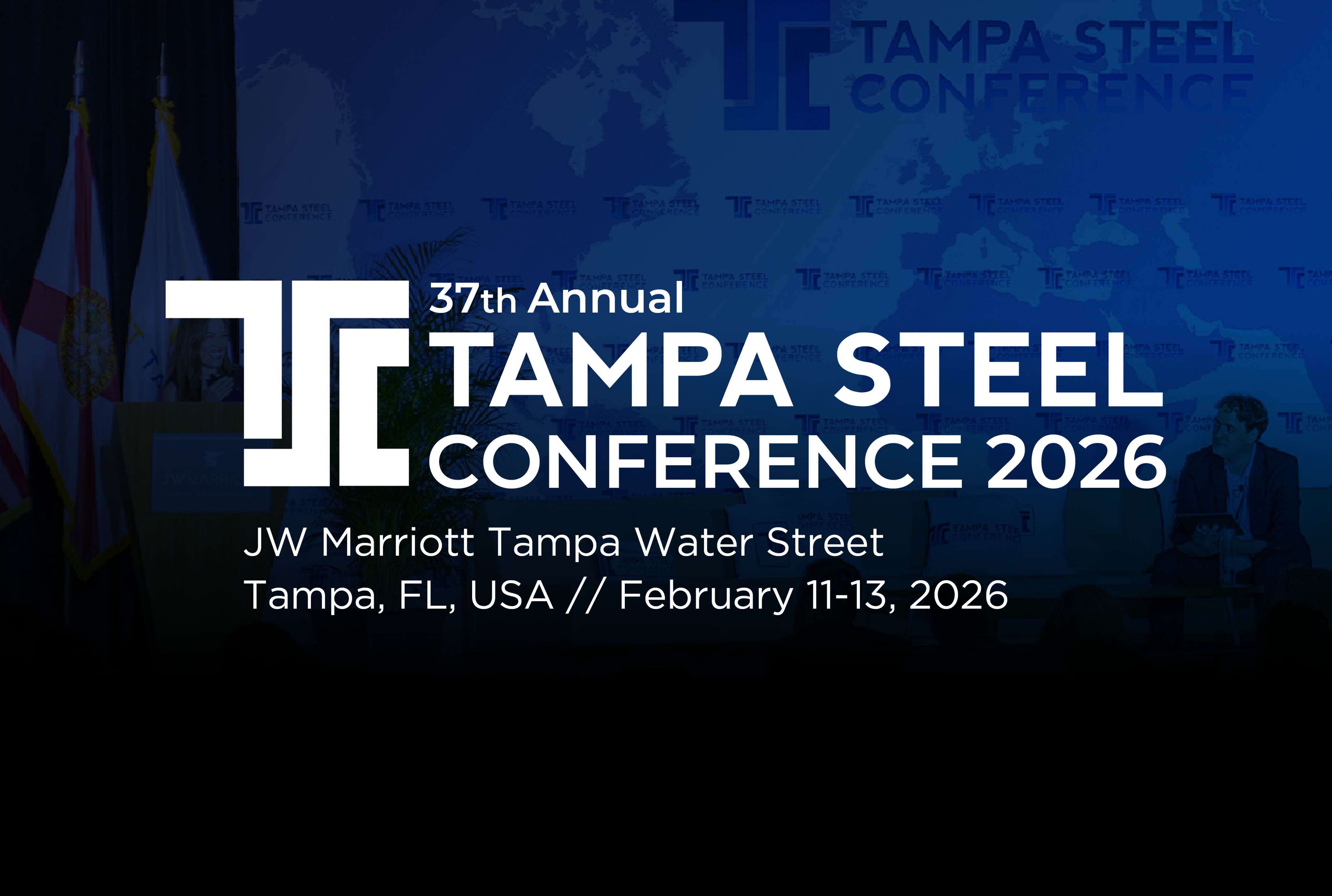Community Events

May 28, 2020
Zekelman: Steel Industry "Resilient" in Pandemic
Written by Sandy Williams
“Resilient” is how Barry Zekelman, executive chairman and CEO of Zekelman Industries, characterized steel markets during the SMU Community Chat Webinar yesterday. “We went through a rapid shock and adjustment at the end of March and early April, but April was actually pretty decent and May is basically back on track,” he said, expressing a fairly optimistic outlook for the rest of the year. “Some sectors will expand at a more rapid rate than others and others will contract or even be gone. And that is unfortunate.”
Most sectors his company serves are doing fairly well and some were barely impacted by the crisis, Zekelman said. Energy and agriculture will be slow coming back both in Canada and the U.S., with Canada lagging a couple months behind the U.S. due to stricter lockdown measures. Although business conditions are currently “brutal” in the energy sector, Zekelman sees the industry as a “fundamental market that will be here for a long time” and with a bright future.
Construction is lagging in certain areas, particularly in the Northeast. A construction slowdown won’t be evident for several more months, and hotel and retail building will be problematic with banks reluctant to lend money to those sectors. Businesses, including Zekelman Industries, depleted inventories in March and April due to the market’s uncertainty, but conditions are leveling off, customers are reopening and steel purchases are increasing. Zekelman purchasing was strong in the back half of April into May and will continue into June, he said.
With the economy reopening, minimills will be the first to ramp up production, using more iron alternatives and scrap, likely driving up scrap costs. Blast furnaces will follow, but the question is at what pace. There is a possibility of a steel shortage if BF mills don’t return to production at the right time, which could push pricing upwards.
Recent steel price increases are “warranted and real,” said Zekelman. If prices are too low or too high, that is unhealthy for the industry. “We need a number in between to keep American and Canadian industries competitive,” he said.
As economic activity picks up in the second half, so will steel consumption. “There is going to be a collision point that could cause a short term spike in prices until the market reacts and [brings production back online],” said Zekelman. “You’ve heard me say that the pendulum always swings too far. Pricing dropped too much and I’m sure will go up too high again. You just have to be on the right side of that equation.”
Zekelman Industries is a supplier of material for the border wall between Mexico and the U.S. The wall will consumed about 700,000 tons of steel products over the past three years, Zekelman estimates. Most of the contracts for the wall are completed for 2020 and most products will ship by the end of the year. Construction of the wall has been a help to those in the structural tubing industry.
Zekelman is a strong supporter of tariffs and other measures to block unfairly traded steel imports. “The U.S. has a fundamental deficit of steel. We are still net importers of product in every category. Some 50,000 tons of standard pipe are imported every month while U.S. pipe mills sit idled. In times like this there should be measures to block those imports out.”
Supply disruptions due to COVID-19 have highlighted the need for companies to rethink sourcing materials overseas. “Everyone has seen what happens when the supply chain has vacated,” said Zekelman. “If you think masks are critical, you can’t build a factory to make masks unless you have steel. That is why we have said that steel is a critical industry. It weaves every part of this economy together.” He expects more reshoring of production as companies realize it can be more efficient to make products closer to the markets they serve.
Infrastructure spending would be a more effective way to put the economy back on track than “handing out checks that allow someone to buy something made overseas,” said Zekelman. An infrastructure bill would put people back to work, increase revenue, taxes and consumption of U.S. goods. America needs to move goods faster, cheaper, safer and greener. Repairing the highway and waterway systems would improve efficiency and pave the way for an economy with self-driving vehicles and high speed transportation. The Phase 4 stimulus package calls for more than $3 trillion in spending, $740 billion of which should be put into infrastructure, said Zekelman, although the bill is not likely to pass this year due to politics.
Editor’s note: Steel Market Update will feature prominent international trade and customs attorney Lewis Leibowitz in our next SMU Community Chat Webinar, scheduled for Wednesday, June 3 at 11:00 am ET. To register click here.






